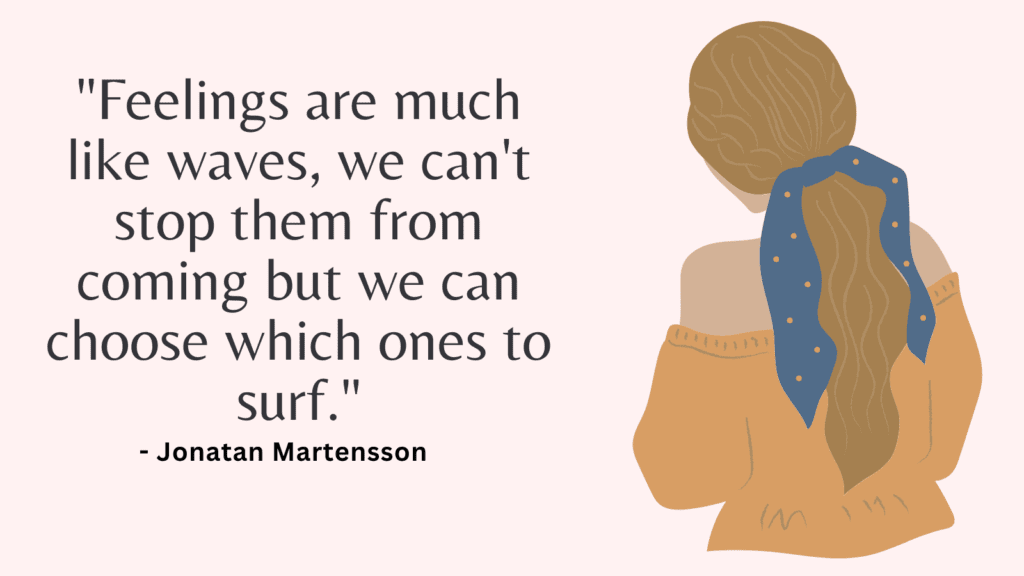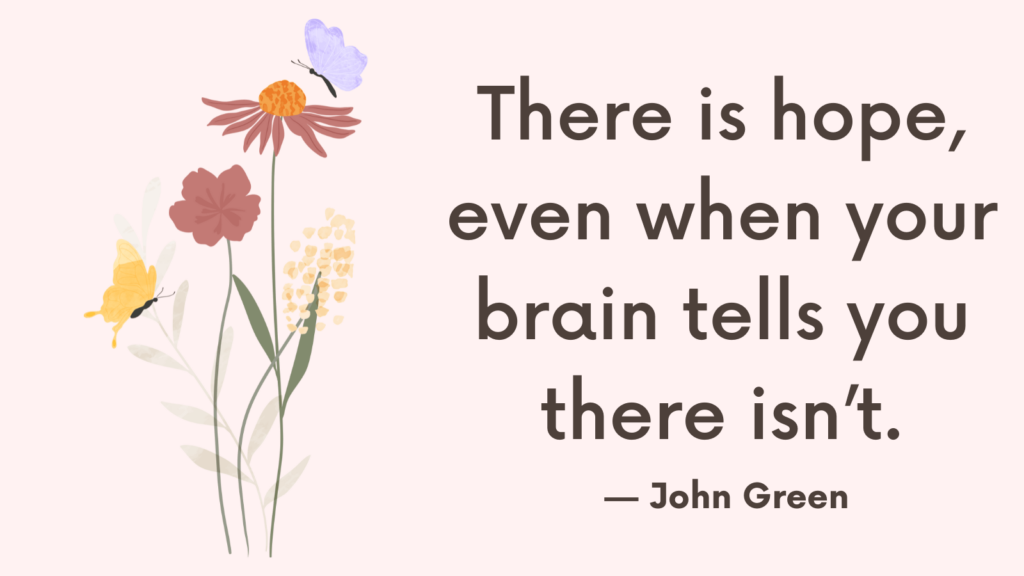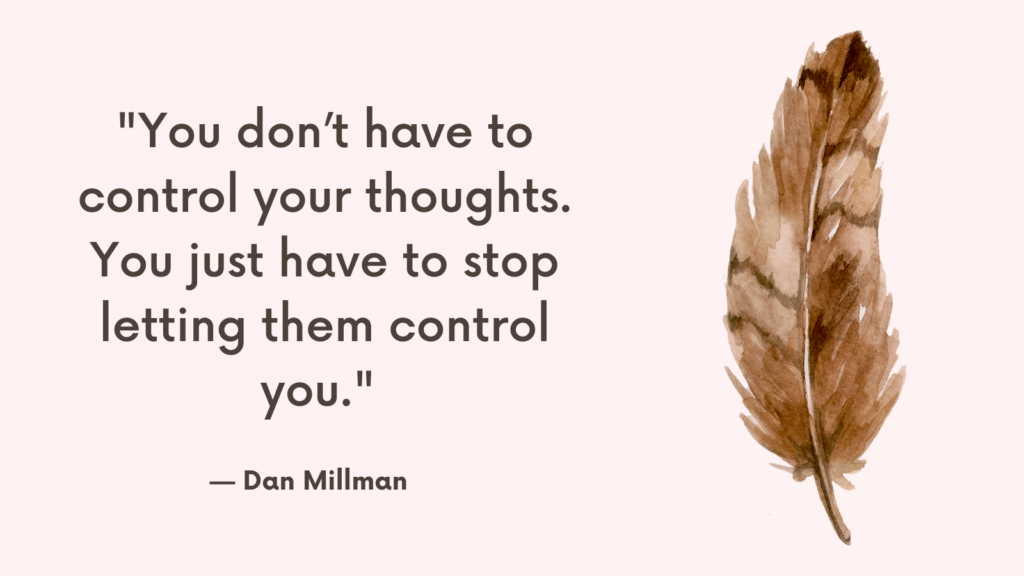In this post, you’re going to discover common triggers for empaths.
Who Is The Empath?
An empath is someone who is able to feel and understand the emotions and feelings of others as if they were their own.
They have a heightened sense of empathy and are often very in tune with the emotions and experiences of those around them.
They tend to pick up on subtle cues, such as body language, tone of voice, and even ambient sounds.
Empaths tend to be caring, compassionate, and sensitive individuals who have an innate ability to connect with others on a deep emotional level.
Related: How To Become A Stronger Empath? Top 20 Actionable Empathy Exercises to Become More Empathetic
What Are Triggers?
Triggers are events or situations that can cause a person to experience intense emotional reactions, strong feelings, memories, or physical sensations.
Triggers may be associated with past traumatic experiences and can occur in response to a wide range of stimuli, including sights, sounds, smells, places, or people.
These triggers can lead to symptoms of anxiety, panic attacks, mood swings, flashbacks, and other forms of distress.
Related: How To Thrive As A Highly Sensitive Person? [HSP’s Survival Guide]
Common Triggers For Empaths
#1. Negative Emotions of Others
Here are some triggers that can affect empaths when it comes to negative emotions of others:
1. Overwhelming sadness or grief – when you pick up on the deep sadness or grief of another person, it can be difficult to separate your own emotions from theirs.
2. Anxiety or fear – when you sense the anxiety or fear of someone else, it can be challenging to not let it affect your own emotions or cause you to feel overwhelmed.
3. Anger or frustration – when you feel the anger or frustration of others, it can be difficult to not take on their emotions as your own or feel helpless in the face of their intensity.
4. Conflict or tension – when you perceive conflict or tension between people, it can be challenging to navigate and not get caught up in the emotional energy of the situation.
5. Energy overload – when you absorb too much energy from others, it can leave you feeling drained, exhausted, or emotionally overwhelmed.
These triggers are normal for empaths because they typically feel the emotions of those around them.
It’s important for you to practice self-care and set healthy boundaries to avoid becoming overly affected by the negative emotions of others.
Related: Top Resources For Highly Sensitive Person (Tests, Support Groups, Books, Workbooks, Blogs, etc.)
#2. Noise Pollution
Noise pollution, such as loud traffic, airplanes, or construction sounds, can be overwhelming for empaths, as it can activate their sensitive nervous systems and cause stress and anxiety.
The constant barrage of noise can also make it harder for empaths to focus, meditate, or recharge.
Moreover, some empaths may feel a deeper connection to the natural environment and its sounds, such as birds chirping or leaves rustling, and noisy man-made sounds can disrupt this connection and trigger discomfort.
#3. Crowds
As an empath, being in crowds can be overwhelming and draining. The energy of the people around you can affect you, both positively and negatively.
Here are some triggers to look out for when in crowds:
1. Emotional turmoil – You may feel overwhelmed by the emotions of those around you, especially if they are experiencing strong emotions like anger, sadness or fear.
2. Physical overload – Crowds can be noisy, chaotic and disorienting, which can lead to physical discomfort and fatigue.
3. Negative energy – Negative energy can come from people who are unhappy, angry or stressed out. This energy can affect you and make you feel drained.
Related: How To Make Peace With Your Past Mistakes Today and Never Repeat Them?
#4. Certain Textures or Smells
As an empath, you may find that certain textures or smells can be triggering and overwhelming.
Some common textures that may be triggering for empaths include rough or prickly fabrics, such as wool or burlap, and slimy or gooey substances.
These textures may cause discomfort or even physical reactions in empaths.
Likewise, certain smells can also be triggering for empaths.
Strong scents like perfume or cologne, smoke, or chemical cleaners can be overwhelming and cause headaches or other physical symptoms.
Empaths may also be more sensitive to natural scents like flowers or essential oils.
Related: Best Edith Eger Quotes (“The Gift”): 12 Invaluable Lessons to Set Yourself Free
#5. Loss of Nature
As an empath, you may experience deep feelings of sadness and grief when observing the loss of nature around you.
This can include deforestation, pollution, extinction of animal species, and destruction of natural habitats.
The following are some possible triggers for empaths when it comes to the loss of nature:
- Seeing images or videos of animals being mistreated or harmed in any way.
- Visiting areas where deforestation or destruction of natural habitats has occurred.
- Observing litter, pollution, or waste in natural environments.
- Hearing about environmental disasters such as oil spills or wildfires.
- Hearing about the extinction of a species or the endangerment of a particular group of animals.
Related: Lack Of Self Awareness: 5 Signs & 5 Tips On How To Increase Self-Awareness
#6. Pollution
As an empath, pollution can be a very strong trigger for you.
The constant exposure to polluted environments can cause stress, anxiety, and even depression.
Pollution can also have physical effects on the body which empaths may feel more acutely.
For example, air pollution can cause respiratory distress or headaches, which an empath may feel more intensely than someone who isn’t as sensitive.
Furthermore, pollution can be seen as a reflection of society’s disregard for the environment, which can be distressing for empaths who are often deeply compassionate and care about the planet.
It can be difficult for empaths to see the harm being done to the earth and its inhabitants, and this can trigger feelings of sadness, anxiety, and frustration.
Related: Top 6 Challenges For Introverts (& How to Overcome Them)
#7. Disorganization And Clutter
As an empath, being in a disorganized and cluttered space can be overwhelming and even draining for you. This is because empaths are highly sensitive to their environment and absorb the energy around them.
Here are some ways that disorganization and clutter can trigger empaths:
1. Feeling overwhelmed – When there is too much clutter or disorganization around you, it can be difficult to focus on anything. This can cause you to feel stressed, anxious, or overwhelmed.
2. Absorbing negative energy – Clutter often accumulates negative and stagnant energy. As an empath, you can easily pick up on this energy and it can affect your mood and emotions.
3. Feeling trapped – A cluttered or disorganized space can make you feel trapped and stuck. This can trigger feelings of anxiety or helplessness.
4. Sensory overload – When there are too many objects or stimuli in a space, it can become too much for empaths to handle. This can lead to feelings of exhaustion or sensory overload.
Related: Best 35 Journal Prompts To Get To Know Yourself
#8. News and Media
Empaths are highly sensitive to the emotions of others and can easily become overwhelmed by the intensity of negative news stories.
News and media can be triggers for empaths because they often report on negative or traumatic events such as violence, disasters, and tragedies.
Additionally, the constant barrage of negative news can make empaths feel anxious, stressed, or hopeless, which can further exacerbate their emotional sensitivity.
How To Identify Your Triggers?
#1. Practice Self-Reflection And Introspection
As an empath, it’s important to recognize your triggers so that you can manage them effectively.
Take some time to reflect on your feelings and emotions. You can do this by journaling or meditating.
You may find it helpful to practice paying attention to any physical reactions you have when you encounter certain situations or people.
Do you feel a tightening in your chest? A knot in your stomach? Tension your muscles?
These physical reactions can be signs of a trigger.
Related: How To Start A Self Love Journey? Top 10 Powerful Ways to Love Yourself More
#2. Understanding Patterns
Look for patterns in your emotions and reactions.
Are there certain situations or people that consistently trigger negative emotions in you? Identifying patterns can help you prepare for future triggers.
Keep track of situations and experiences that make you feel uncomfortable, anxious, or overwhelmed.
Think about situations in the past where you have felt similarly overwhelmed. This can provide insights into patterns that you may have not noticed before.
Trust your gut instincts. If you have a feeling that a situation might be triggering for you, listen to that feeling and take steps to protect yourself.
Related: Top 5 Self Love Exercises (+FREE Self-Love Resources)
#3. Journaling And Tracking
Journaling and tracking your experiences can be an effective way to identify patterns and triggers.
Here are some steps you can take:
1. Start by setting aside some time each day to reflect on your feelings and experiences. Find a quiet space where you can be alone with your thoughts.
2. Write down any emotions or physical sensations you’re experiencing. Pay attention to any patterns that emerge, such as feeling overwhelmed in crowded spaces or anxious when watching the news.
3. Take note of any specific situations or people who trigger your emotions. For example, being around someone who is angry or stressed might make you feel the same way.
4. Use your journal to explore your emotions in more depth. Write about how certain experiences make you feel and why they may trigger you.
5. Once you’ve identified your triggers, come up with a plan for how to manage them. This might involve avoiding certain situations, setting boundaries with people who trigger you, or practicing self-care techniques when you’re feeling overwhelmed.
Related: Top 5 Acts Of Self Love To Start Practicing Today
FREE Empath Worksheets
How to Manage Triggers?
#1. Set Boundaries
One of the best ways to manage triggers is by setting boundaries.
Here are some tips on how to do so effectively:
1. Identify your triggers: The first step in managing your triggers is to recognize them. Take note of what situations or people cause you to feel overwhelmed, anxious, or stressed.
2. Create physical boundaries: It’s crucial to have a physical space where you can retreat and recharge. This could be a room, a quiet corner, or even a chair that’s designated just for you.
3. Set emotional boundaries: Empaths tend to absorb others’ emotions, which can be exhausting. Learn to recognize when you’re taking on too much and set limits on how much you allow yourself to absorb.
4. Say no: Empaths often have trouble saying no, but it’s essential to prioritize your own needs and boundaries. Be assertive and don’t feel guilty for refusing things that detract from your well-being.
Remember that setting boundaries is crucial in maintaining your mental health and well-being. Don’t be afraid to defend your boundaries, as they will serve you well in the long run.
Related: Top 25 Tips On How To Set Boundaries In A Toxic Relationship? (+FREE Worksheets PDF)
#2. Practice Self-Care
As an empath, managing triggers is crucial for maintaining mental and emotional well-being. One of the most effective ways to manage triggers is through self-care.
Here are some self-care practices that can help:
1. Take Breaks: As an empath, you need to recharge your emotional batteries regularly. Take breaks from social situations or busy places that overwhelm you. Use this time to relax and rejuvenate.
2. Practice Mindfulness: Being mindful means being present in the moment. Practice mindfulness techniques such as meditation, deep breathing, yoga or other relaxing activities that help you stay grounded.
3. Engage in Creativity: Creative activities like writing, art, or music can provide an outlet for emotional expression and help you process difficult emotions.
4. Get Enough Rest: Restful sleep is crucial for your emotional and physical well-being. Ensure that you get enough rest and establish healthy sleep habits.
5. Exercise: Exercise has been known to reduce stress levels and improve overall mood. Find an activity you enjoy, such as walking, jogging, yoga, or swimming, and make time for it.
Remember that self-care is not a one-size-fits-all approach. Find what works best for you and make self-care a priority in your life.
Related: Top 45 Self Care Day Ideas at Home To Kickstart Your Self Care Ritual
#3. Reduce The Impact of Noise Pollution
Here are some tips to help you reduce the impact of noise pollution on your life:
1. Create a quiet space: Create a designated quiet space in your home or office where you can retreat to when you need a break from noise pollution. This could be a spare room, a corner or even a closet.
2. Listen to calming music: Playing calming music or ambient sounds can help drown out the noise pollution around you and create a sense of calm.
3. Take breaks from technology: Technology can contribute to noise pollution in the form of constant notifications, dings, and beeps. Take breaks from your devices to reduce the amount of noise pollution in your life.
Related: Top 10 Books About Empaths
#4. Reduce Your Exposure to Pollution
There are a few things you can do to reduce your exposure to pollution:
1. Stay indoors during peak pollution times: Pollution levels tend to be highest during rush hour. Try to stay indoors during these times if possible.
2. Use an air purifier: Consider investing in an air purifier for your home. These devices can help filter out indoor air pollutants such as dust, smoke, and pollen.
3. Close windows and use AC: Keep windows and doors closed when outdoor air quality is poor. Use air conditioning instead of opening windows to cool your home.
4. Use a mask: If you need to be outdoors during peak pollution times, consider wearing a mask to protect yourself from inhaling harmful pollutants.
Related: Top 45 Empath Quotes That Will Make You Feel Seen
#5. Seek Support
Managing triggers as an empath can be a challenging task, but seeking support from others can be incredibly helpful.
Here are some tips on how to seek support when managing triggers:
1. Reach out to a trusted friend or family member: Let them know that you are struggling with managing your triggers and could use their support. A listening ear can sometimes make all the difference.
2. Find a support group: There are many online and in-person support groups for empaths and highly sensitive people. Joining a group can provide you with a sense of community and the opportunity to connect with others who are experiencing similar challenges.
3. Seek out a therapist: A therapist can provide you with tools and techniques to better manage your triggers. They can also act as a non-judgmental sounding board and provide you with a safe space to explore your feelings.
Remember, seeking support can be a powerful tool in managing your triggers as an empath. Don’t be afraid to reach out to those around you and ask for help when you need it.

Conclusion
As an empath, you have the ability to feel and absorb the emotions of others.
While this can be a gift, it can also be challenging at times.
It’s important to take care of yourself and practice self-care when dealing with these triggers.
This could involve taking breaks from social media or news articles that report on environmental issues, spending time outdoors in nature, or engaging in activities that help promote positive change for the environment.
It’s also important to seek support from loved ones or a mental health professional if you feel overwhelmed by these feelings.



